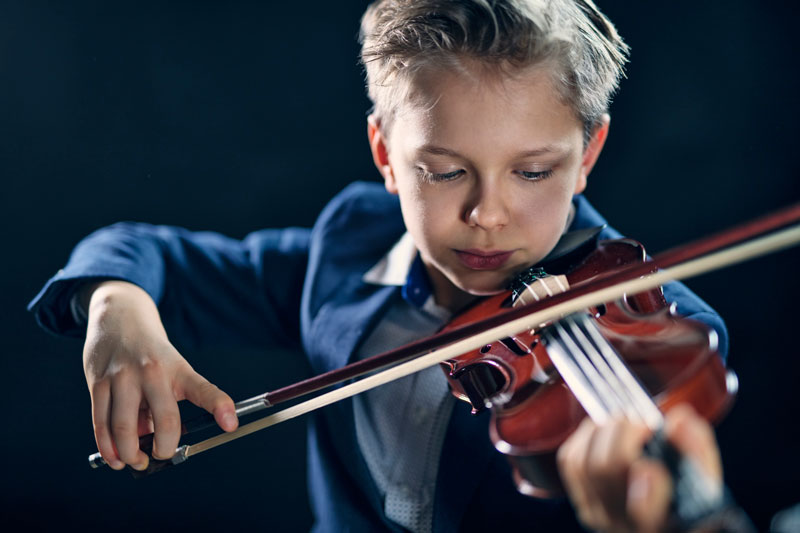
Neuroplasticity is the ability of the brain to form new neural pathways and it has an amazing impact on the development of the child’s brain. It turns out that learning how to play a musical instrument takes advantage of this amazing property of the brain and helps your child develop many other skills at the same time.
Due to the invention of the functional MRI, a technology that helps scientists see what’s going on in our brain when we are engaged in different activities, a lot of studies have been made and scientists concluded that playing an instrument has many different benefits in your child’s brain development.
How it works First of all, it’s important to know that playing an instrument is like having a full-body workout. This means that this activity engages both hemispheres of the brain to work at the same time. This is very important because that means that a lot of neural pathways are used while doing that. And the more neural pathways we have, the smarter we are.
Because playing an instrument means that your child has to engage the motor, visual and auditory part of the brain, your child will develop the ability to process different information at the same time.
Moreover, while using both the left and the right hemisphere at the same time, the part of the brain that makes a connection between the two develops more neural pathways and strengthens your child’s ability to see both the analytical and emotional sides of a problem.
Also, the fact that music has an intense emotional content, enables your child to access the depth of emotions. Researchers concluded that this gives your child executive abilities, like the ability to develop strategies, to plan, and, most important, the ability to pay attention to details.
Problem-solving skills Even though they seem unrelated, playing music and problem-solving abilities are connected by an invisible bond. Well, invisible for us but not for researchers. Researchers concluded that playing music has a great impact on the development of the brain’s abilities to solve problems, academic as well as everyday life problems.
This happens because, as we’ve said before, the part of the brain that acts as a bridge between the brain’s hemispheres is more developed than in people who don’t play any instrument and, as a consequence, the brain’s ability to make connections is enhanced.
Messages get faster through the brain and on multiple routes resulting in the ability to solve problems in a more creative and efficient manner.
Playing music and the impact on memory Researchers have also studied how playing an instrument impacts the development of a musician’s memory and concluded that a child who plays music develops a more efficient and complex way of storing memories.
Imagine a computer that gives tags to every memory stored on it. That’s how the memory works, but a child who plays an instrument has the ability to give various memory tags to every memory he/she forms.
This involves conceptual tags, emotional tags, and auditory tags, making it easier for them to later access these memories, depending on the context he/she needs to use them in.
Conclusions Knowing all this, allowing your child to learn how to play drums might not seem such a bad idea after all. You can even help him/her by choosing the best drum set using the guide from Sound Unsound.
Whatever instrument the child wants to play, it’s important that you encourage them to do so, because the ways in which they can benefit from this experience are amazing and it will help them acquire skills that will be useful for the rest of their lives.



























